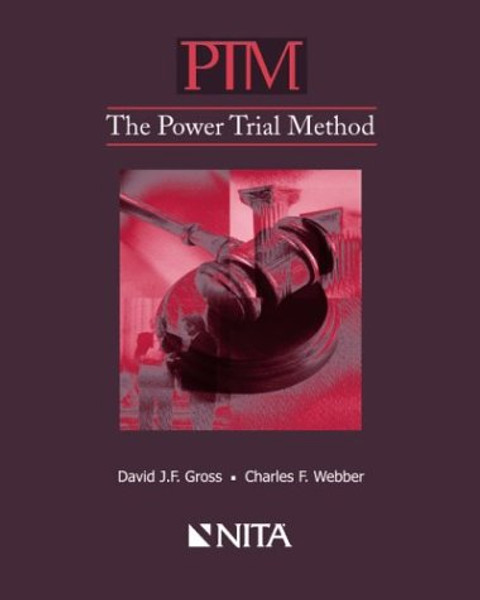Product Overview
The Power Trial Method, a unique, new, easy-to-read trial skills primer, begins with a simple question about jury trials: Who has the power in the courtroom to decide whether you win or lose? David J. F. Gross and Charles F. Webber, two of the nations most highly regarded trial lawyers, developed this material to introduce new litigators to the trial process and to reduce the anxiety associated with jury trials by emphasizing key methods of persuasion and presentation.
The Power Trial Method begins by discussing why attorneys need to focus on power in the courtroom. Gross and Webber describe how to assess the trial judges use of power and how to persuade the jury to use its power. The authors examine the importance of a trial theme and how to create fairness points.
Most of the anxiety about trials, according the Gross and Webber, is caused by the fear of forgetting something. The authors outline the basic tasks involved in trial preparation, what written materials are needed, how to set up a courtroom for trial, and what to include in your trial notebooks and trial box. The book addresses a wide variety of trial skills, including how to present your opening statement, examine witnesses, introduce evidence, use demonstrative exhibits, make objections, deal with experts, handle jury instructions, give your closing argument, and conclude your trial.
The appendices contain valuable sample documents for the young attorney such as excerpts from The Federal Rules of Evidence, a sample exhibit list, a special verdict form, a sample opening statement, a sample expert witness examination, and two sample closing arguments.
Throughout the book, Gross and Webber point out the pitfalls that can occur during a trial and how an attorney can react to them. They include dozens of humorous and insightful examples of what to do and not do during a trial. The reader can laugh and learn at the same time while reading this memorable, concise trial practice manual. The Power Trial Method can make you a better trial lawyer, one who is more prepared and better able to react to the power sources at trial.






